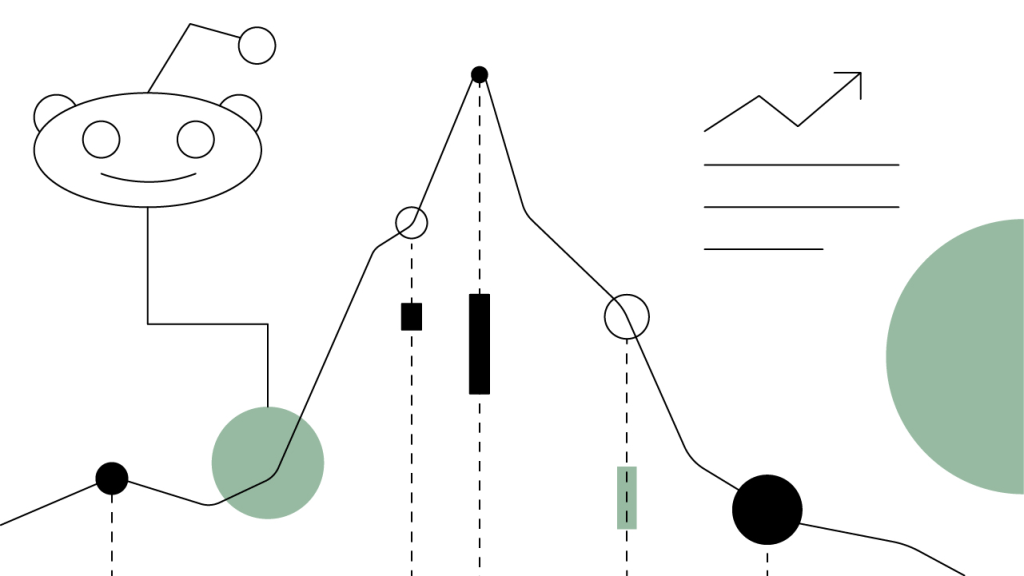Contents
What Is a Short Squeeze? A Deep Dive Into the GameStop Saga
When you short a stock, hoping it will go down in price, it’s possible to be squeezed out of your position by those looking to drive up the stock’s price.
Updated October 21, 2021 • 5 min read

Summary
When you short a stock, you sell shares that you’ve borrowed from a broker, and which you are responsible for returning. If the shares’ value goes down, you can purchase the shares to give back to the broker. Your profit is the difference between your short price and the price you purchased the shares at, minus any interest charged by the broker. If you short a stock and it rises in value, you are responsible for the difference and may incur a financial loss. A short squeeze can happen when a shorted stock rises in value. Short sellers must cover their short positions before the stock rises too high. In essence, they are “squeezed” out of their positions by a rising stock price. If they don’t cover the difference in price by depositing collateral, their position will get liquidated.
Going Short vs. Going Long
In the same way that you can potentially profit when a stock rises in value, you also could profit by betting that a stock will go down in value. Short selling entails borrowing stock from a broker, then selling the borrowed shares with the hope that the price goes down. If the price does drop, you can potentially profit by buying the same shares at a price lower than what you paid initially. In this case, you would return the borrowed shares to your broker — plus interest — and pocket any difference.
For example, if you borrowed 10 shares from your broker at $100 USD per share, then sold them for $1,000 when the share price had dropped to $60, you could buy them back for $600, return them to your broker, and pocket $400 in profit (minus the interest the broker charged).
Though it’s possible to profit by shorting shares that decline in value, if the opposite happens and the shares rise, then you're responsible for covering the difference. So, if you short sell 10 shares at $100 for $1,000 and the price of those shares rises to $140, you’d need to buy back the shares at $1,400, return them to your broker, and lose $400 (plus the interest your broker charged for lending those shares in the first place). When the price of a short-sold stock rises dramatically, you could end up owing far more than your initial investment.
Importantly, when a short position rises in value, you must have enough margin in your account to cover the rising value of the shorted stock — in the example above: $1,400 plus the interest you owe. If you don’t have enough margin in your account, your broker can close out your position, which would result in losing your total initial investment. This is true even if the stock later goes below the price you shorted it at. A short squeeze can happen organically when a stock’s price rises based on market conditions, such as good financial news. It can also happen purposefully, when investors target a heavily shorted stock to drive up its price knowing that short sellers must cover their positions before the stock’s price gets too high.
WallStreetBets: GME Short Squeeze
Although short squeezes happen somewhat frequently, the Gamestop short squeeze that occurred in 2021 captured the public’s attention. Gamestop — publicly traded as GME — is a brick-and-mortar video game chain. Heavily targeted by hedge funds that were betting on the share price’s decline, at one point there were more short-sold GME shares than there were GME shares in existence. This anomaly caught the attention of a large group of retail investors who sought to execute a short-squeeze play on the GME short sellers by aggressively purchasing GME shares. A major catalyst of the short squeeze was an online community known as WallStreetBets. This group of stock- and option-trading enthusiasts (primarily retail investors) was particularly active on Reddit in a forum called r/wallstreetbets, where members would discuss stock picks, crowdsource knowledge, and critique each other's ideas. It was in this forum that the idea for the GME short squeeze was born.
Robinhood’s Robin Hood: Roaring Kitty
Though some saw nothing wrong with the GME short squeeze, others seemed to indicate that this targeted short squeeze of the hedge funds shorting GME stock was deeply troubling, morally wrong, or even downright illegal. Keith Gill — a particularly vocal and well-known contributor to the r/wallstreetbets community who’s known online as “Roaring Kitty” and “DeepF***ingValue” — was a hero, or villain, of the Gamestop short squeeze saga in the eyes of many.
While also believing in the fundamentals of Gamestop as an undervalued stock, Roaring Kitty and WallStreetBets targeted GME for a short-squeeze play. Knowing that the short positions must be covered, a large swath of retail investors started purchasing GME shares. Many of them used Robinhood, which allowed for commission-free trading.
GME was trading at less than $20 per share in early 2021, but this retail-driven GME short squeeze caused the price to go parabolic in late January — hitting nearly $500 on Jan. 28, 2021. This caused massive gains for some (primarily retail investors) and massive financial losses for others (primarily institutional investors). At the peak of the buying frenzy, Robinhood made the decision (to many, a controversial one) to prohibit its users from purchasing selected stocks, including GME.
Robinhood Halts GME Stock Purchases
Robinhood’s decision to halt trading of select stocks, in particular GME, shocked a great many people, who believed that the decision was fundamentally unfair and simply a way for big corporations and institutions to change the rules mid-game. Although Robinhood users could sell GME, they were temporarily barred from purchasing additional shares.
Many thought that Robinhood made this decision to protect hedge funds, including those with which it has financial arrangements. Robinhood derives a significant portion of its revenue from selling its retail investors' order-flow data to hedge funds. Many detractors saw Robinhood's financial ties to hedge funds as a key motivator behind the platform's decision to freeze purchases.
Gamestop Short Squeeze Hearing
On February 18, the House Financial Services Committee held a remote hearing with Roaring Kitty, hedge fund CEOs, and the CEOs of both Reddit and Robinhood. During the hearing, Robinhood’s CEO claimed that halting GME purchases had nothing to do with protecting hedge funds, and instead was the result of a request for $3 billion from the National Securities Clearing Corporation. In fact, several other trading platforms that cater to retail investors temporarily halted purchases of GME stock shares as well, citing the same reason.
GME Short Squeeze: Winners and Losers
By the end of January, short sellers of GME had lost a combined $6 billion. Many of the losses were incurred by hedge funds such as Melvin Capital — which required billions of dollars in investments to remain solvent.
As for retail purchasers of GME, many who sold their shares as the price skyrocketed profited handsomely. However, some who invested later on in the cycle incurred heavy losses as they held on even when the share price dropped nearly as quickly as it rose. While some institutional investors suffered heavy losses, research suggests several other hedge funds cashed in on the short squeeze and made millions as they exited their positions.
Following these events, some disillusioned retail investors increasingly perceived the legacy financial system as fundamentally broken. Around the time Gamestop and other heavily shorted share purchases were halted by Robinhood and other brokerages, the market capitalization of cryptocurrencies and precious metals experienced increases. Dogecoin (DOGE) temporarily increased in value more than 800% around this time.
Crypto and DeFi vs. Wall Street and Central Banks
Although many see Reddit’s r/wallstreetbets and other online forums as leveling the playing field when it comes to stock market analysis and investment knowledge, cryptocurrencies may be changing the power dynamic of who can trade what, and when.
Crypto’s burgeoning decentralized finance (DeFi) sector is going far beyond bitcoin (BTC) — allowing people around the world to lend and borrow capital without needing traditional financial services intermediaries. Some are also able to earn interest on their crypto that is far in excess of current bank interest rates. The Gamestop short squeeze has served as a stark example of certain latent shortcomings within our financial system and has cast a light on the burgeoning ecosystem of cryptocurrencies and DeFi as potential solutions to some of these concerns.
Cryptopedia does not guarantee the reliability of the Site content and shall not be held liable for any errors, omissions, or inaccuracies. The opinions and views expressed in any Cryptopedia article are solely those of the author(s) and do not reflect the opinions of Gemini or its management. The information provided on the Site is for informational purposes only, and it does not constitute an endorsement of any of the products and services discussed or investment, financial, or trading advice. A qualified professional should be consulted prior to making financial decisions. Please visit our Cryptopedia Site Policy to learn more.

Is this article helpful?


